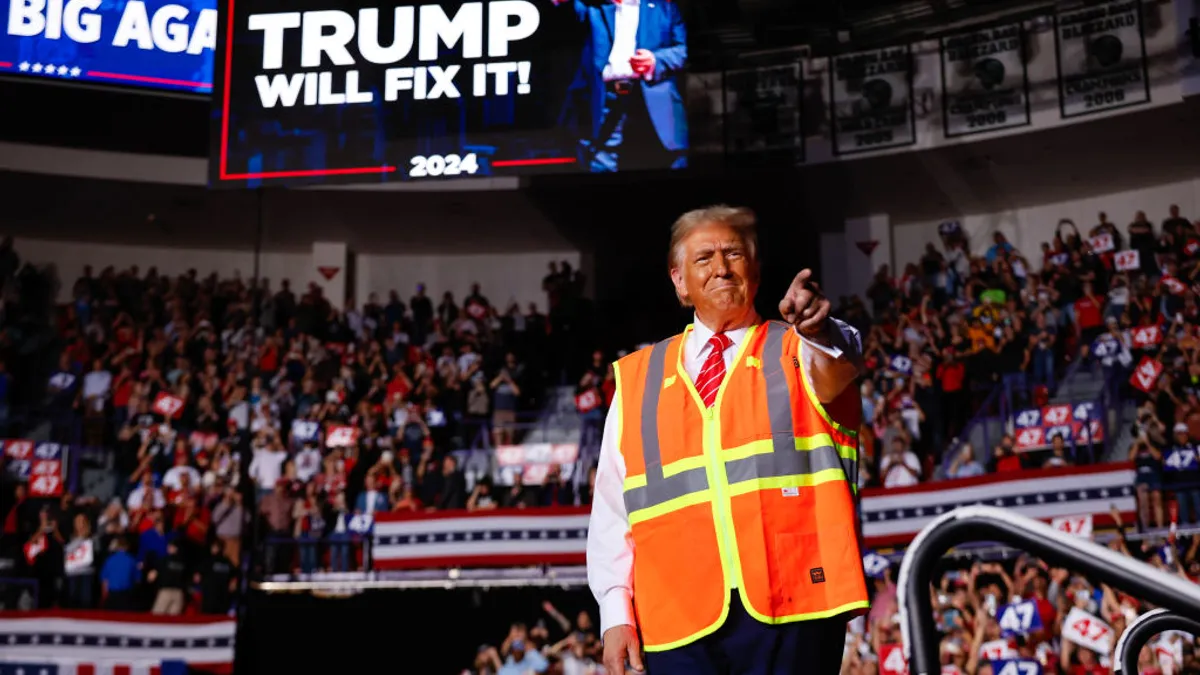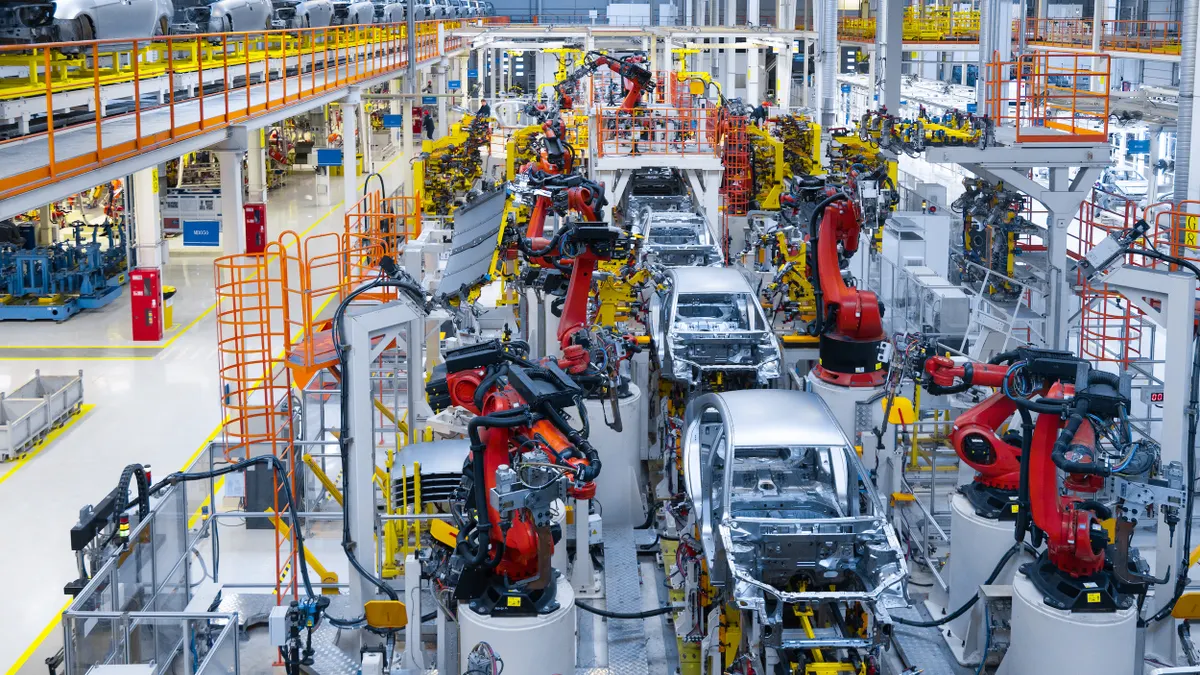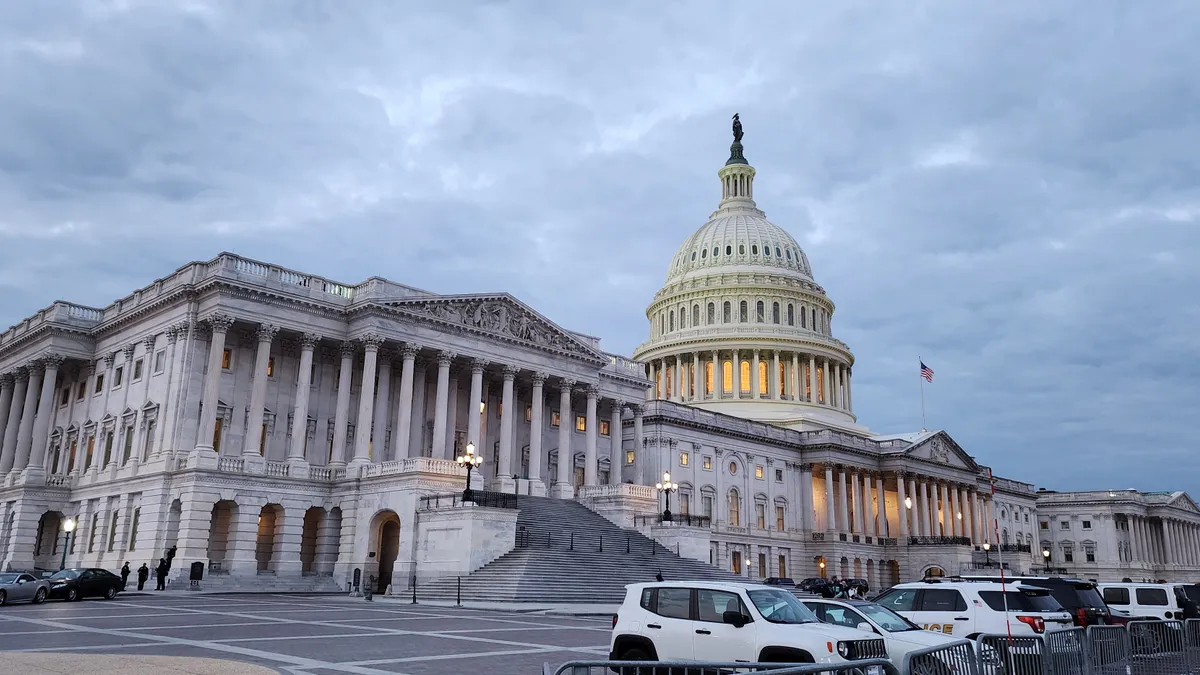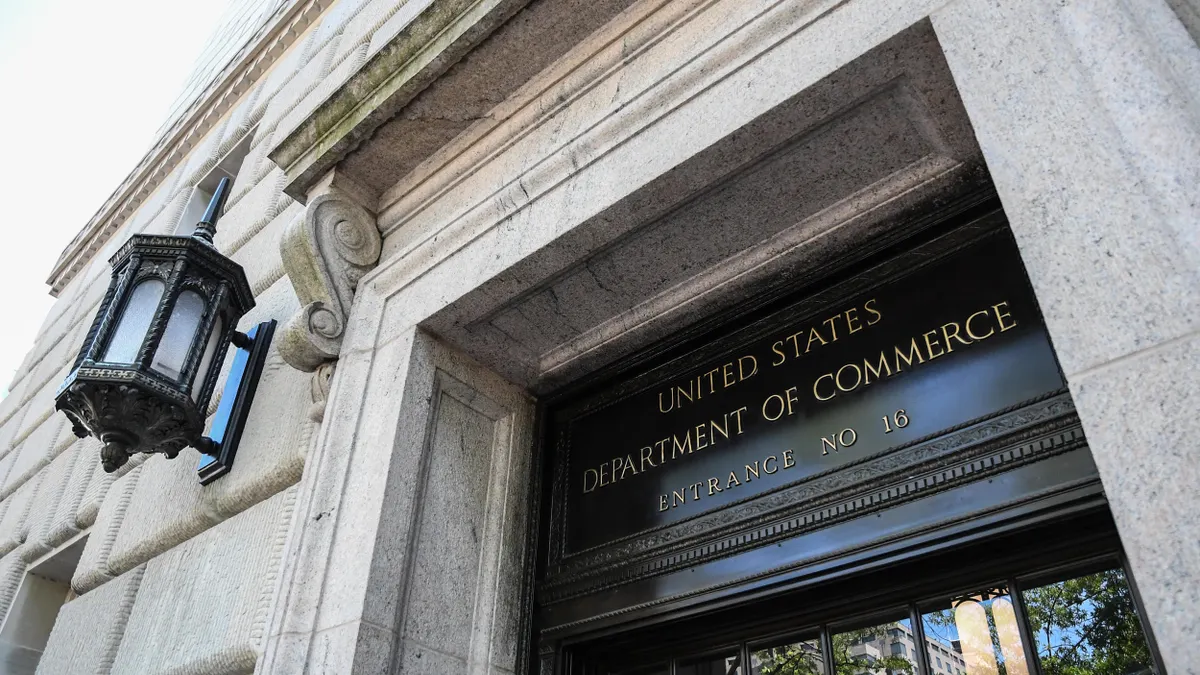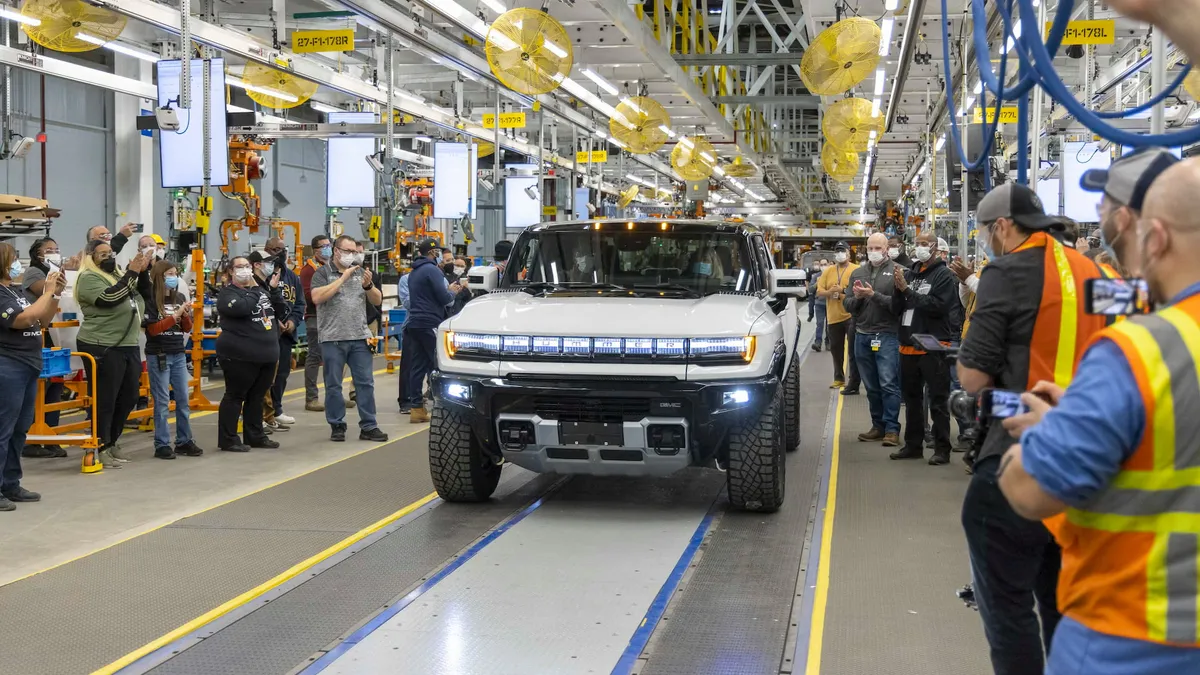Former President Donald Trump has been particularly critical of the CHIPS and Science Act in recent days.
In an interview on The Joe Rogan Experience podcast late last month, the former president blasted the Biden-Harris administration's landmark semiconductor manufacturing funding law, saying “that chip deal is so bad.”
“We put up billions of dollars for rich companies to come in and borrow the money and build chip companies here, and they’re not going to give us the good companies anyway,” Trump said on the podcast.
Trump claimed the country should have instead used tariffs to push companies to build chip factories in the U.S., rather than federal subsidies and tax credits.
“When I see us paying a lot of money to have people build chips, that’s not the way,” Trump said. “You didn’t have to put up 10 cents, you could have done it with a series of tariffs. In other words, you tariff it so high that they will come and build their chip companies for nothing.”
The comments have prompted the question of whether Trump, if reelected, would try to defund some of the legislation’s funding for domestic semiconductor factories.
The CHIPS Act allocates a bucket of $39 billion for semiconductor manufacturing. Thus far, the Biden administration has awarded more than $33 billion across 32 projects.
However, only one project’s funds, $123 million for Polar Semiconductors, have been disbursed. The rest of the awards remain in the “due diligence” phase, meaning the Commerce Department is working with the applicant to “confirm and further refine their workforce commitments and standards,” according to the National Institute of Standards & Technology.
The Biden-Harris administration plans to announce all awards by the end of the year, Commerce Secretary Gina Raimondo said in an April CNBC interview. However, a DOC spokesperson declined to comment on whether the administration intends to disburse all funds before President Joe Biden leaves office.
So, what might a Trump presidency mean for the CHIPS Act?
“He could certainly throw a wrench into the existing CHIPS Act,” said Alan Sykes, a law professor at Stanford University. “There's a possibility of fairly dramatic effects if he were to win the White House and try to curtail the subsidies.”
Trump could move to replace the subsidies with high tariffs in a bid to get foreign companies to manufacture in the U.S. in order to avoid the fees. While Sykes said this could push companies to open factories here, it would also likely drive up the cost of domestically made chips.
“The big difference is there's a long lag time for something like semiconductors, it takes a long time to build these factories. Giving them direct money to do it, which is what the CHIPS Act does, people pretty much go ahead and do it,” Sykes said.
“If they have to go to the capital markets and count on long-term tariffs for the basis for investment, tariffs can always go away,” Sykes added. “A new administration could get rid of them, and so the credibility of protection might be weak.”
Other aspects of the CHIPS Act that Trump could alter are the workforce requirements for the projects, said Sanjay Patnaik, a senior fellow at the think tank the Brookings Institution. Many of the preliminary funding terms include workforce development requirements as well as partnerships with local unions for construction jobs to build the facilities.
Under a Trump administration, Patnaik noted that could change. “I would expect some of that to be softened under Trump,” he said.
Vice President Kamala Harris, meanwhile, is more likely to maintain the Biden administration’s pro-union approach to building CHIPS-funded factories, Patnaik said. Harris visited recent CHIPS awardee Hemlock Semiconductor’s Michigan factory last week, stumping on the law as a force for job creation.
“We have to constantly be on top of what is happening, what is current, and investing in industries of the future as well as honoring the traditions and the industries that have built up America’s economy,” Harris said. “And what you all are doing here is exactly that.”


